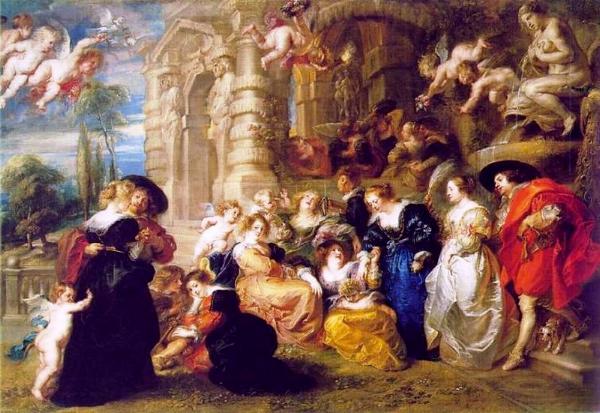Antonio Ruiz de Elvira 
He died a few days ago the great English classical philologist Antonio Ruiz de Elvira (1923-2008). Just in my previous
post cited and recommended me his article. I was privileged to treat something (less than I would have liked) and, above all, I have always learned a lot from his writings. So it's not my intention to write his obituary, not his biography, but only recall some aspects of its intellectual and human personality, with the data and memories (personal or reads) that can contribute. In addition, Ruiz de Elvira himself wrote an autobiographical sketch, he inserted in his book Studies mythographical
(to which I will soon). Apparently, he was also preparing a full autobiography, I do not know if it would end and whether it will be finally published.
was a great classical scholar of the old school, equipped with an encyclopedic knowledge and at the same time, an exquisite aesthetic sensibility and a strict moral sense. It was extremely cultured and curious, writing and lecturing on a wide range of humanistic fields: classical literature, but also mythography, philosophy, history, art and music (his passion). He was an expert musicologist and a good musician. Always went to the opera with score of the work depicted. Considered the most valuable zarzuela genre opera musically. From this point of view intellectual (now speak of interdisciplinarity) estimated that classical culture was a Greco-Roman cultural unity which, in turn, formed a whole with the Western European culture (in this era of multiculturalism orientalizante fool, he was very clear cultural and ideological value of Western civilization). Being a great Latinist, equally well managed sources and Greek texts were translated Plato, and disagreed with the separation (which some now advocate stolidly) between the Greek and Latin studies. It was especially an example of culture and humanistic scholarship (in the broadest sense), compared to the short-sightedness, if not blatant ignorance that now prevails in classical studies in Spain, also among many academics. It was an elitist (in the noblest sense of the word), very politically incorrect (in these days of stupid political correctness), independent and totally free (without integrated into factions or directed). He liked to call things by their name: I could not understand this attitude of respect
fashionable all, because it ensured that the world had to respect the respectable, and not respecting the non-respectable. At a time when Marxism and psychoanalysis Freud was accepted as dogmas of faith by the intelligentsia
, he had the foresight to assess the thinking of Freud and Marx as they are intellectual frauds he called "boorish millstones" (today and has realized almost worldwide).
despised mediocrity and rudeness, as they are evils that prevail in the world on positive values. But he also believed in three ideals that make life worth living: beauty, justice and freedom. Antonio Ruiz de Elvira was an extremely conservative man, as a textual critic and political ideology (one day should be a study on the correlation or not between the two facets). In textual criticism, was reluctant to enter in the text conjecture that altered the reading transmitted by the manuscripts. Venerated the testimony of the manuscripts as if they were sacred. If I had to stay with two works of his numerous scientific, they would be a magnificent
Classical Mythology (the best global treaty published in Spain on the issue and that exceeds, in addition, many foreign manuals) and his edition of the Ovid's Metamorphoses
with English translation (the best translation into Castilian of Metamorphosis
) and dense notes, published in the collection Alma Mater. He also published many feature articles, many of which are listed in the following two collections:
- Antonio Ruiz de Elvira, Silva Topics Classics and Humanities, Murcia: Universidad de Murcia, 1999.
- Antonio Ruiz de Elvira, mythographical Studies meeting in tribute to the author by his disciples , Madrid: Publications Service of the Complutense University, 2001.

When I invited him to give a lecture at a summer course organized by me in Merida in 2001, with the title (the conference not the course) of "classical mythology in music, gave me a copy of
mythographical Studies ... and stamped loving this dedication: "A Gabriel Laguna, and grateful remembrance of this conference in Merida, with all my affection. 12-VII-2001. Antonio Ruiz de Elvira."

So keep that book as gold cloth. The other book collection,
Silva, was acquired in Valencia, in October 2007 when I visited the city of Turia (well, there is no passing through Valencia Turia) on the occasion of the English Congress of Classical Studies. He also hoped to have opportunity I ask him to devote the next time they were to agree. There will be no occasion.
One of the things that drew the attention of Don Antonio was his style in his writings and lectures he was giving. His articles and books contain sentences ranging from two to three pages, with subordinate resubordinadas, clarifications, parentheses and digressions, but never losing the thread of the sentence syntactic or incur ever in anacoluthon. In their dissertations rarely been within the subject. When I invited him to teach the lesson that I mentioned, remember to tell us about the divine and human, told us anecdotes, asides, interjections and observations thousands, until it exceeded the allotted time without being virtually on the subject. Some branded this baroque style and cumbersome. I believe that the syntax was too complex and organized as a manifestation of a mind equally complex and organized. Seneca's assertion jibe nicely:
Talis fuit oratio qualis vita hominibus , "Such was the style of men like his life" (Epistles
114.1). The same thought, centuries later, Robert Burton, author of The Anatomy of Melancholy
:
Virum arguit stylus ("style reveals the man.")
Antonio has died Ruiz de Elvira. And with his death, the intellectual landscape of Classical Philology in Spain is more desolate and barren.
 Speak ... The Word "
Speak ... The Word "








.jpg)